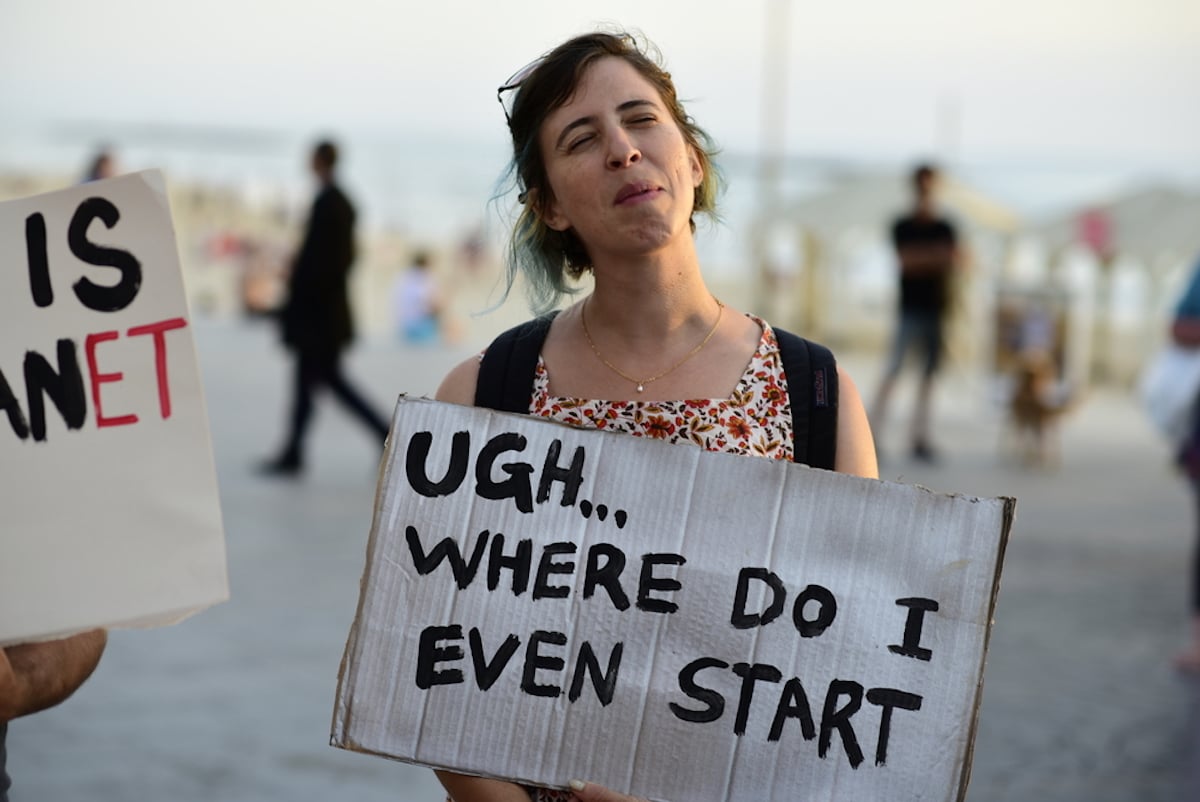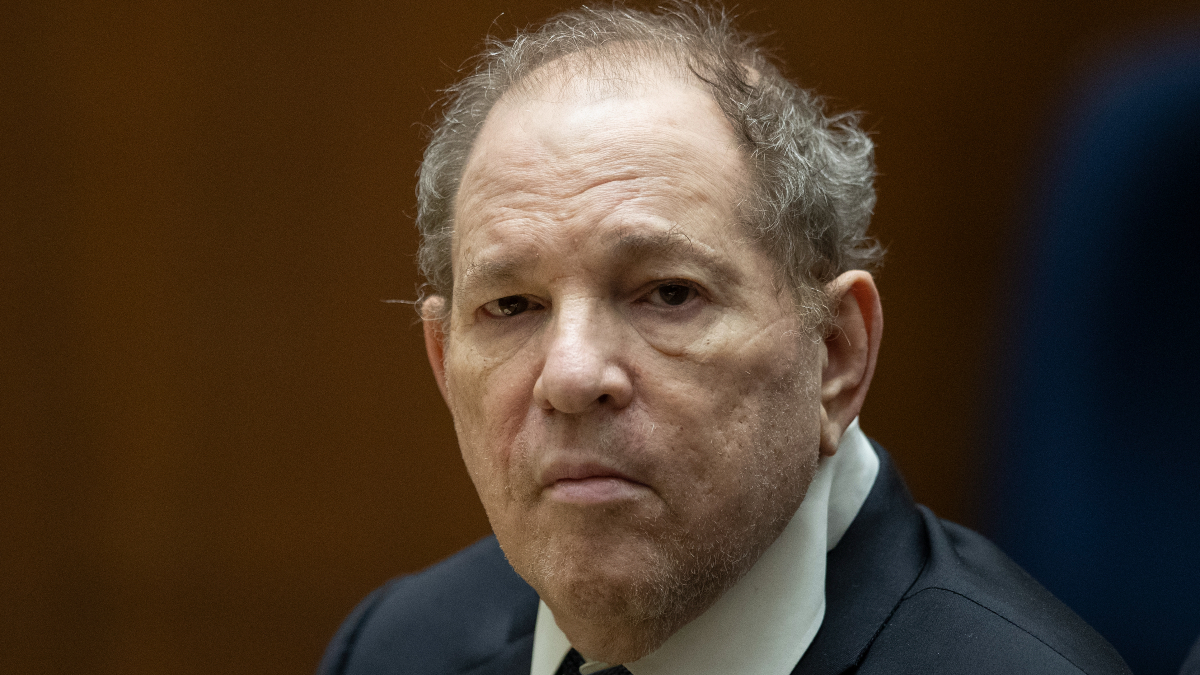Welcome to The Week in Reproductive Justice, a weekly recap of all news related to the hot-button issue of what lawmakers are allowing women to do with their bodies!
This week, a Georgia bill that would essentially ban all abortions passed out of the state Senate, pending passage from the House and signature from the state’s extremist anti-choice governor, Brian Kemp. The fetal heartbeat ban strategy has been making its rounds through state legislatures across the country, but is drawing almost unprecedented levels of public pushback and mass protest.
In the days since the bill, HB 481, passed out of the legislature, several businesses and groups, from Amazon and Coca Cola to prominent writers’ guilds and Hollywood production companies, have threatened to pull out of Georgia if Kemp signs the bill into law, but a greater conversation has also been taking place about the critical importance of state-level elections in supporting reproductive rights. As many reproductive rights advocates have pointed out, suffice to say, this situation might look very different had Georgia offered a fair election in November 2018, and had vocal pro-choice advocate Stacey Abrams been elected.
In either case, it’s groundbreaking to see businesses get involved and stand up for abortion rights in a highly visible way. Their response serves as a critical reminder that consumers have the power to shape political outcomes by demanding higher values not only of our elected representatives, but also of the companies we patronize in our everyday lives.
And certainly, those values include the human rights of women and pregnant people.
Ohio Senate passes fetal burial requirement bill
This week, fresh off passing their own fetal heartbeat bill not too long ago, Ohio’s state Senate passed a bill that would require women who have abortions to pay out-of-pocket for the burial or cremation of their aborted fetus. Not only could this cost somewhere in the thousands, but the bill is also quite literally meant to tell women who have abortions that they’re murderers, and penalize them.
As if subjecting women who have abortions to the emotional trauma of being forced to bury what they’re told are the remains of their “unborn child” weren’t draconian enough, the legislation in question would also require clinics to document the number of abortions each woman has had, and their chosen fetal burial method, and report these numbers to the state. Ohio’s anti-choice Republican governor, Mike DeWine, has already indicated he would sign the bill into law if it passes through the House.
North Carolina’s 20-week abortion ban struck down in court
In some much-needed good news, this week, a judge struck down North Carolina’s long-standing law banning abortions at or after 20 weeks of pregnancy. The 20-week ban has been on the books since 1973, but in 2015, an amendment to the law explicitly criminalized abortions after 20 weeks, with few exceptions. Now, the law has finally been struck down, effective in two months.
This ruling is especially important in the context of recent, intense backlash against later abortion that began with the introduction of Virginia and New York policies to protect the right to later abortion. Since then, leading anti-abortion politicians have launched a rhetorical and legislative crusade to portray later abortion as “infanticide,” and obfuscate the tremendous nuance and maternal health implications of later abortion.
Despite anti-choice politicians’ determination to portray all abortions as later abortions, about 90 percent of abortions take place in the first trimester. Abortions that happen later tend to be the result of extreme health circumstances, or delays caused by restrictions impeding earlier abortion access, a result of the work of the same anti-choice politicians who claim to loathe later abortions.
As of 2019, 17 states have laws that ban abortion after 20 weeks. Hopefully, this latest court decision is the first of several to reverse dangerous restrictions on later abortion and protect women’s health.
Maine bill to cover abortion costs introduced to the state House
This week, state lawmakers in Maine’s House of Representatives introduced a bill that would cover the costs of abortion care through MaineCare.
State Rep. Mindy Woerter accompanied her support for the bill with a personal testimony, in which she detailed her personal experience with abortion a few years earlier. Woerter said she needed an abortion when doctors told her that her fetus had a lethal anomaly; after having an abortion, she learned it would cost $6,000 out of pocket.
Stories like Woerter’s remain all too common due to laws like the Hyde amendment, which bans federal taxpayer dollars from covering elective abortion, and many state-level iterations of it across the country. It’s also a reminder that technical reproductive rights aren’t enough; we need reproductive justice—equitable, real-world access to the full range of reproductive health care and all resources necessary to make safe, autonomous decisions about one’s life and family.
If successful, Maine could take a crucial step to transform abortion access from socioeconomic privilege to fully realized human right—and all while, on the federal level, landmark legislation to repeal the Hyde amendment has finally made its way to both the House and the Senate.
Allegations against Willie Parker remind us reproductive justice means justice for survivors
This week, a woman named Candice Russell alleged that famed abortion provider Dr. Willie Parker had sexually assaulted her one year ago. Russell’s story was especially disappointing to read in light of Parker’s status as one of the last later abortion providers in the South and a renowned advocate for reproductive justice, but her story is a reminder that we can’t allow for sexual violence to be a partisan issue, or selectively believe survivors based on whose story fits our ideological preferences.
Core to reproductive justice is the fight for safety from sexual violence, and justice for survivors. The right to safety, autonomy, and determinism in one’s bodies is as bound to reproductive rights as it is, issues of sexual violence. Believing and standing up for survivors, who risk everything just to come forward, will always be a central part of the fight for reproductive justice.
In response to Russell’s story, reproductive justice advocates and organizations have been quick to voice their support for her and all survivors.
In a statement, the National Network of Abortion Funds wrote, “The National Network of Abortion Funds is in solidarity with those who have come forward. Every person in the abortion access movement holds responsibility for fostering an ethical environment, free from harassment, violence, and improper or unprofessional conduct, sexual and otherwise. We all hold this responsibility, whether we are an abortion funder, provider, volunteer, employee, or supporter.”
Tune in next week to see what lawmakers will try next in their never-ending mission to derail reproductive justice!
(image: Avivi Aharon / Shutterstock.com)
Kylie Cheung writes about feminism and politics, with a focus on reproductive justice. Follow her on Twitter @kylietcheung, or learn more about her writing at www.kyliecheung.tumblr.com.
Want more stories like this? Become a subscriber and support the site!
—The Mary Sue has a strict comment policy that forbids, but is not limited to, personal insults toward anyone, hate speech, and trolling.—








